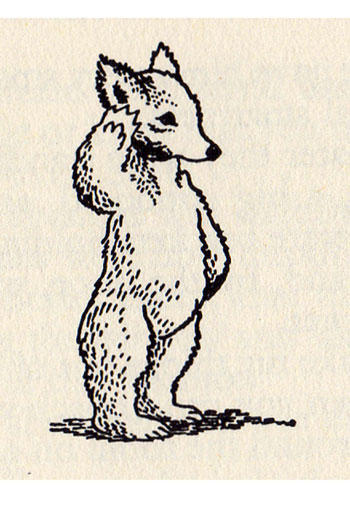Wednesday, September 17, 2008
Evidence
Guy has posted about evidence and it reminded me that I have been fascinated by the French approach to evidence as we have been buying our house. We have of course had to provide endless certificates- birth, marriage, income tax- and bank statements etc for the mortgage, but I'm thinking more about the actual purchase and also the bank's approach to the mortgage documentation. For both we have had to 'prove' we have read all the documents by each initialing every page (recto and verso) of every document and then have both had to write 'lu et approuve' many times with our signature (that last e of approuve should have an acute accent, no idea how to do that here!). On occasion we have also had to write great chunks of English (once) or more commonly French in our own handwriting- and again we have each had to do this- and sign. That this is in some way ritualistic was confirmed when I queried the meaning of one bit of the insurance policy for the mortage. No-one in the bank could explain it (and I mean explain not translate) but still we signed to say it was read and approved. If one set of initials is missing from the mortgage papers, we have to go back to square one and sign all over again with another enforced cooling-off period. The acceptance has to be postmarked by the French post office to prove we have had the cooling-off period (not that easy when we were in England at the time).
Alongside this emphasis on written witness is a formal reliance on oral ritual. At the beginning of the time with the notaire to sign the compromis de vente, he read out aloud our names and addresses and so forth and we had to confirm this was us to make it all valid. The whole occasion was exactly that- an occasion. The buyers and sellers are there, plus the estate agent and notary, and there is a real sense of this act of witness being evidence that proves the transaction has taken place.
Guy has posted about evidence and it reminded me that I have been fascinated by the French approach to evidence as we have been buying our house. We have of course had to provide endless certificates- birth, marriage, income tax- and bank statements etc for the mortgage, but I'm thinking more about the actual purchase and also the bank's approach to the mortgage documentation. For both we have had to 'prove' we have read all the documents by each initialing every page (recto and verso) of every document and then have both had to write 'lu et approuve' many times with our signature (that last e of approuve should have an acute accent, no idea how to do that here!). On occasion we have also had to write great chunks of English (once) or more commonly French in our own handwriting- and again we have each had to do this- and sign. That this is in some way ritualistic was confirmed when I queried the meaning of one bit of the insurance policy for the mortage. No-one in the bank could explain it (and I mean explain not translate) but still we signed to say it was read and approved. If one set of initials is missing from the mortgage papers, we have to go back to square one and sign all over again with another enforced cooling-off period. The acceptance has to be postmarked by the French post office to prove we have had the cooling-off period (not that easy when we were in England at the time).
Alongside this emphasis on written witness is a formal reliance on oral ritual. At the beginning of the time with the notaire to sign the compromis de vente, he read out aloud our names and addresses and so forth and we had to confirm this was us to make it all valid. The whole occasion was exactly that- an occasion. The buyers and sellers are there, plus the estate agent and notary, and there is a real sense of this act of witness being evidence that proves the transaction has taken place.
